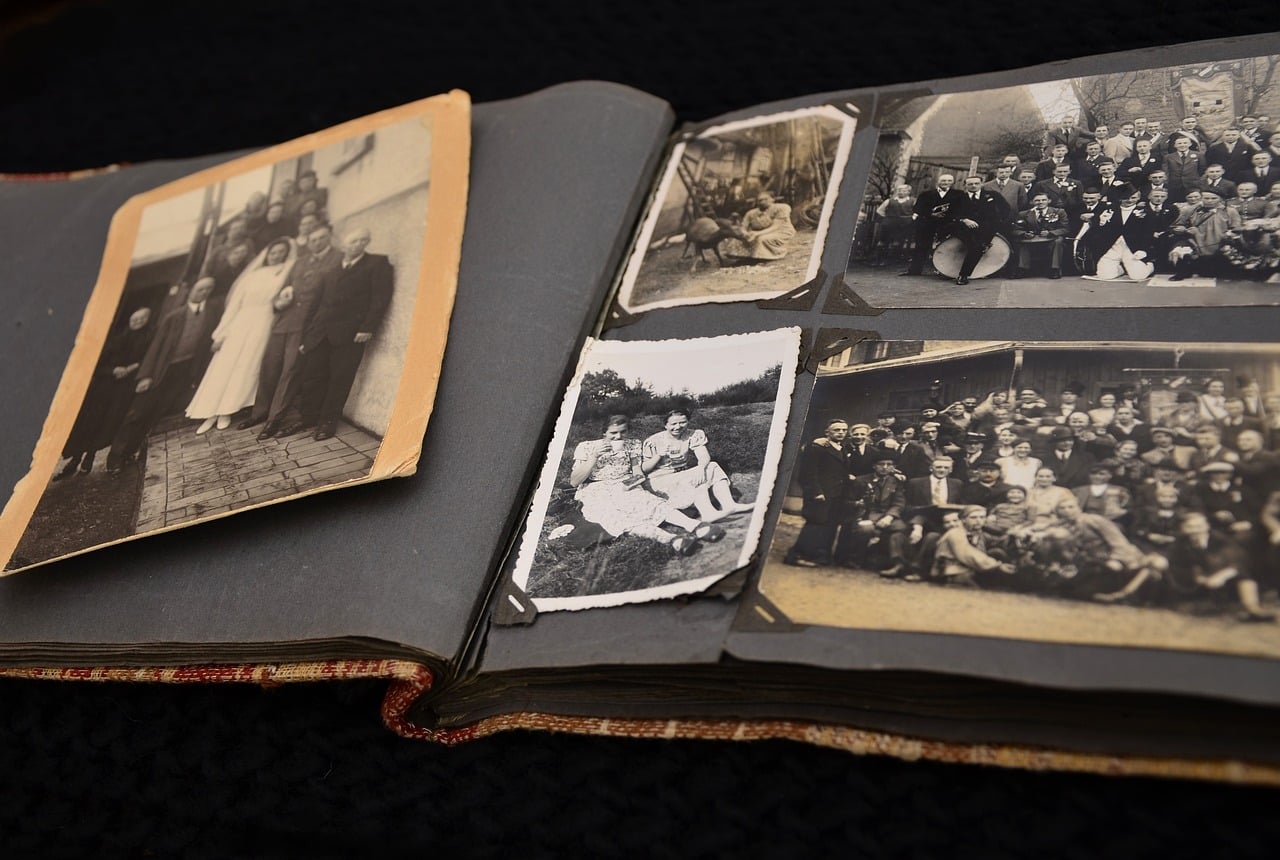5 Key Tips on How to Research Your Nonfiction Book Without Getting Overwhelmed
June 28, 2024
“Research is to see what everybody else has seen and to think what nobody else has thought.” Albert Szent-Gyorgyi
Writing a killer nonfiction book is more than merely putting pen to paper. While you may have amazing prose in mind, a nonfiction book requires accuracy and attention to detail. That is why research is the backbone of all great nonfiction works.
But what if you are not so familiar with researching a nonfiction book?
No worries. We have you covered!
This article will discuss five key tips on how to research your nonfiction book without getting overwhelmed. These tips will help you strategize your research, so your nonfiction book flows without a hitch.
Let’s get on with it!
5 Tips on How to Research Your Nonfiction Book
1. Define your genre.
Defining your genre is the first step in writing your nonfiction book. Understanding your genre allows you to carry out research effectively.
How so?
Think about it this way: Musicians use instruments based on the type of music they play. After all, would you take an electric guitar to a piano recital? Similarly, having a clear vision of your book’s genre allows you to do research effectively.
You might be thinking, “There are a million genres out there. How can I define the right one for my book?” There is a simple hack you can employ to answer that question.
Take a look at books similar to the one you would like to write. For instance, you are interested in writing about your professional career. You initially consider writing an autobiography. But after researching similar books, you realize that you are better off producing a memoir and not an autobiography.
Having a clear vision of your nonfiction book’s genre helps you lay down the groundwork for the most significant part of your book: the outline.
So, please take the time to go over books with a similar scope to yours. You may find that other nonfiction books can help you narrow your focus on the right genre. Keeping the right genre in mind will save you a ton of work down the road.
2. There is no substitute for a solid outline.
Writing a book without an outline is like going on a trip without a roadmap. You may know where you are going, but you may not know how to get there. The best and most seasoned writers know that having a great outline makes the entire writing process work smoothly.

A solid outline takes the guesswork out of the writing process. It’s like having precise directions to reach your destination.
A great outline begins with understanding your genre. From there, you can build your content based on the message you wish to convey.
Let’s consider an outline for a memoir. A memoir focuses on a specific episode or period in your life. Thus, including childhood memories, unless somehow relevant to the specific period in focus, should not make it into the book. In contrast, an autobiography would include childhood memories as it is your life’s chronicle.
As you can see, your chosen genre can significantly affect your outline’s composition. If your outline is too broad, you may end up with too much material for a single volume. If your outline is too narrow, you may not get enough material to complete a full-length book. A good rule of thumb is to aim for a broader outline. You can always trim the fat as you go through the writing process.
3. Build a structure.
A common mistake is to write a nonfiction book without employing a clear structure. A lack of structure may lead you to write haphazardly. In other words, readers may not find an easy flow to your book’s development. In contrast, a clear structure guides readers through your book as you develop your argument.
There are several structures you can employ. Let’s consider the following:
- Climax/story/ending. When writing biographies, autobiographies, or memoirs, using the climax/story/ending can help you guide readers through your story. For instance, you can start your account by discussing a climactic moment. Then, you can lay the background for readers to consider while ending the book with the aftermath of the climactic situation.
- Problem/reaction/solution. This structure is great when looking to raise awareness about an issue. For example, your book is about climate change. You begin by describing the problem. You describe the situation by using facts, figures, and data to support your perception of the problem. Then, you discuss the current actions or reactions taken to address the issue. Finally, you propose a solution to the issue. Ultimately, you allow the reader to make a decision about the best course of action based on the information you have presented.
- Theory/application. Some nonfiction genres begin by explaining relevant theoretical concepts. Then, they transition from theory to application. This approach allows readers to learn about the topic and then see it in real-life situations. You can use this approach in virtually every kind of nonfiction area. However, you must ensure your development gradually eases the reader into concepts. For instance, you can use deductive or inductive reasoning. Deductive reasoning allows readers to go from general to specific concepts. Inductive reasoning uses the opposite approach: Readers build broader concepts by starting from specific ones.
Ultimately, your research must focus on the structure you plan to employ. If you plan to build concepts using inductive reasoning, your research must provide specific examples readers can use to build broader concepts. If you plan to open your book with a pivotal event, be sure to get as much information as you can on the event. In doing so, you can paint the best possible picture to capture your readers right from the start.
4. Know the tools of the trade.
We have now come to the nitty-gritty part of the research process. Once you have understood your genre, built an outline, and conceived your structure, the actual research process requires you to use the most appropriate tools.
Consider this example:
What tools would you use to research a company history book?
First of all, you can go through company records, logs, and files to find documentation, photographs, and video to chronicle the company’s history.
Additionally, you can conduct interviews to get experiences and anecdotes from key company members.

Lastly, doing an online search may reveal newspaper stories and articles about the company. Similarly, visiting your local library may uncover additional information you may not have previously considered.
This example features a practical example you can follow. But these tools are not the only ones available to you. Let’s consider other research tools you can employ:
- Expert interviews. Subject matter experts can provide valuable insights on your chosen topic. Expert interviews provide instant credibility to your material. Additionally, you can use expert interviews to corroborate the information you have compiled. For instance, a historian can confirm the authenticity of your uncovered photos or artifacts.
- World almanacs and databases. Almanacs and databases contain useful information you may need to round out your research. For example, the CIA World Factbook (https://www.cia.gov/the-world-factbook/) contains a wealth of information about countries by world region. Also, the Old Farmer’s Almanac (https://www.almanac.com/) can provide information on agricultural facts and figures. Databases such as the Bureau of Labor Statistics (https://www.bls.gov/) can provide the in-depth data you need to build clear and powerful arguments.
- Encyclopedias. In the old days, print encyclopedias were the go-to source for information. Nowadays, online encyclopedias can be a good place to begin research. Encyclopedias such as the Encyclopedia Britannica (https://www.britannica.com/) provide highly useful and insightful information on virtually any topic. Also, please consider visiting your local library. Libraries generally contain older books that can help you take a deep dive into any topic.
- YouTube. YouTube can help spark your research. YouTube videos may contain ideas or analyses you may not have considered before. However, always take YouTube videos with a grain of salt. Much like Wikipedia pages, you cannot fully trust the information on those sites. So, it is always a good idea to double-check everything you see and hear.
- Google Scholar. Google Scholar has you covered if you need scientific literature on virtually any topic. Google Scholar is a repository for peer-reviewed scientific literature. Since it is a search engine, the search results will take you to specific publications where you can find papers. Similarly, other scientific databases such as JSTOR (https://www.jstor.org/) or Academia (https://www.academia.edu/) can help you find the literature you need to back up your arguments.
When in doubt, check out the Library of Congress (https://www.loc.gov/). It is the world’s largest repository of archives, photos, books, and publications. The Library of Congress may be the place where you can find rare photos, out-of-print publications, or specific data you need to complete historical information.
5. Make a plan.
Time is, by far, the biggest constraint writers face. And yes, research is a time-consuming endeavor. Most authors get hung up with research. They hit dead ends. They feel like they do not make any headway. Then, they put things off until their writing projects begin to languish.
But it does not have to be that way.
You can avoid falling into this trap by making a plan. This plan begins with your outline. The easiest way you can tackle any research project is to break down your research into chapters or sections. A common mistake is to hoard as much information as possible and then sort it out. The sorting process is what makes research time-consuming.
Think about it.
If you collect reams of data but do not sort it, you may find yourself awash in a sea of information without really knowing how it fits into your narrative.
Instead, focus on one chapter or section at a time. Think about the information you need to build your story or argument. Collect that information and catalog it accordingly. You can use digital tools such as Evernote to help you track key information. Also, be sure to flag information you think will be useful down the road.
Lastly, be sure to set a schedule for your research. Try your best to commit to a realistic schedule. Setting time aside in your calendar can go a long way toward helping you focus your efforts. Ultimately, being organized will pay off in droves.
How can a ghostwriter help you complete your nonfiction book?
A ghostwriter is a professional writer who can assist you in completing research, sorting information, and producing your manuscript. Professional ghostwriters know what it takes to produce high-quality nonfiction content because they know the best sources of information.
Hiring a ghostwriter can be the deciding factor that gets your nonfiction book off the ground. Here are three key benefits you can expect from hiring a ghostwriter:
- A ghostwriter is a trusted writing partner. A professional ghostwriter can work with you every step of the way. They can also assist you as much or as little as you need. For instance, a trusted ghostwriter can help you with research and planning while you get set to produce your nonfiction book.
- A ghostwriter can tackle the heavy lifting. Time constraints may limit your ability to sit down and write. Thus, a professional ghostwriter can tackle the heavy lifting for you. They can write the bulk of the text, allowing you to focus on research, writing, and reviewing. If you are on a tight schedule, a ghostwriter can very well save you significant time and effort.
- A ghostwriter can help you review and edit your work. Professional ghostwriters know what works and what does not. Consequently, they can help you review your work so that you can ensure a high-quality nonfiction book. Additionally, ghostwriters can become great writing coaches. They can assist you in reviewing your work to ensure you are on the right track.
Ultimately, a professional ghostwriter can play various roles. They can play the role you need them to play. So, it pays to seriously consider hiring a ghostwriter, especially if your writing project needs a jumpstart.
One Final Word
Getting a nonfiction book project off the ground may seem daunting. It may seem particularly intimidating if you do not have much writing experience.

Hiring a professional and experienced ghostwriter can help put the jitters to rest.
A trusted ghostwriter can become the key to making your nonfiction book project come to fruition.
Take the time to interview various candidates until you find an experienced ghostwriter with the skill set you need to make your vision a reality.






























